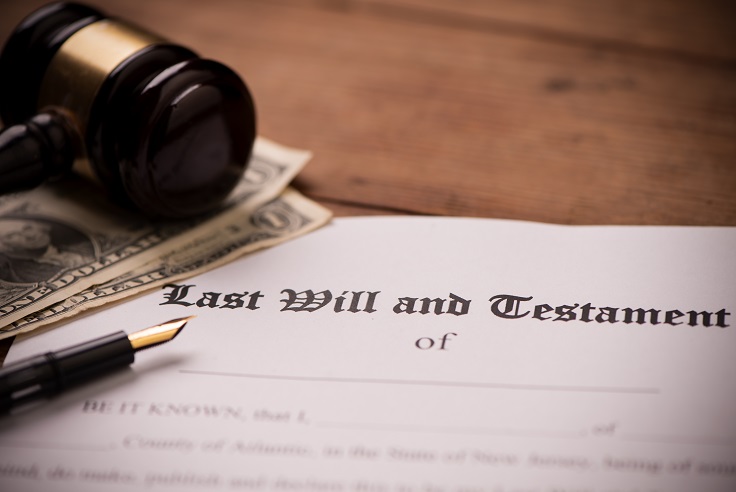July saw a ½% slip in our economy, partly to do with the lack of productivity from strikes and partly the weather affecting things like construction. Sterling has been weak too – partly too as a consequence of the expectation that interest rate rises to stem inflation (which is falling dramatically) have come to an end. Unemployment is rising too. It is very hard to have a buoyant economy and no inflation…
The ‘Goldilocks’ scenario of ‘not too hot and not too cold’ is exceedingly difficult to achieve and as we all know, markets, currencies, commodities, etc always over-react both on the upside and the downside. The rising oil price is a ‘nasty’ to watch however. Still, the lower confidence (and rising unemployment) meant that inflation dropped – its descent is assured now, as long as oil behaves. Still, at 6.7% it is still far above the US’s 2.5%. Sterling drifted as a consequence as another interest rate rise was abandoned as ‘not necessary’. It isn’t necessary, regardless.
According to Bank of America, if those safe bonds (of which received wisdom says every investor should hold some to counter volatility) – specifically the US 10-year Treasury Bonds – fall again in 2023, it will be the first consecutive three-year drop in history – effectively since the creation of the United States of America. I suppose it should not be such a surprise, as general interest rates were at record lows too, so as we said at the time (however unpopular), it was inevitable capital values of ‘safe’ bonds paying zilch would fall significantly as alternatives began to pay more.
You may not have seen it but salary-related pension schemes are beginning to enjoy surpluses – Wincanton shares jumped this week as a big deficit was replaced with a surplus and the company can stop making any contributions – a transformation in its profitability going forwards. Yes, if you have a deferred final-salary scheme, probably you have missed the boat with transfer values now – they have halved or fallen even more as liabilities to trustees have plummeted as interest rates have risen.
How good are your investments?
 It’s an interesting consideration as to whether an investor should expect the share price of the host company of the investment product they have been sold to be a reflection of the investment prowess of the firm itself.
It’s an interesting consideration as to whether an investor should expect the share price of the host company of the investment product they have been sold to be a reflection of the investment prowess of the firm itself.
Certainly each company extols how wonderful its investment products are for its investors and why we should all be buying them but if the company is struggling to sort itself-out at the corporate level, does that reflect anything? This is not about short-term market vagaries but longer-term trends and ‘performance’ of the business. If they can’t manage their own business, ‘how well can they manage others’ money in investments’ might be the question! The flip side is that often if the company is ‘good’ (or seriously under-valued), investors would be better-off in their shares rather than in the products sold to them!
I watch myriad situations, which is what you would expect of any investment manager. There are some examples which perhaps don’t reflect the confidence the sales teams demonstrate in the marketing material, like St James’s Place where the shares have fallen by half since their peak on 31 December 2021. (Yes, that excludes dividends and any costs in acquisition or management). They are not alone – Abrdn (the old Standard Life too) has fallen by 70% since its peak in May 2015 (but far more generosity with dividends, I should add). Maybe there is a reason some firms don’t float on the market, to escape the short-termism by speculators!
I suppose another side to this is those managers and advisers who don’t invest in the same things they manage or recommend. Our clients can be assured that personally, as well as the Company’s own surplus finances we maintain, we hold the same things which we believe are the optimum assets for clients to hold (clearly in different proportions according to risk, size, etc!) That’s a demonstration of our confidence – and integrity that we are not recommending something to ‘you’ that we are not unhappy to hold ourselves too. Indeed, we want our clients to have all the best possible investments for the future!
Risk – we all need to take some

An excellent article in the Financial Times last week:- What tennis can teach investors about risk and return
It is so well-written and notes the need to take calculated risks (starting by understanding what ‘risk’ actually means – doing nothing is always high risk). Boiling the kettle is risky, as is going out on the roads but we calculate the anticipated extra benefits from so doing. He notes too that trying to maximise winners and to minimise losers is not healthy (impossible?) – it is having a favourable relationship with both which counts.
This is about ‘strategy’ and then the necessary skill to execute that. He equates playing tennis and reminding us that at an amateur level, you lose because you make more mistakes than the opposition – all you have to do to win is keep returning the ball safely. At a professional level, not only must you calculate the ‘risks’ of each shot and how to reply, but you need to make just a few more successful returns than your opponent to win. Do you recognise you are an amateur with investments?
He also notes, as we concur, that diminishing the risks of bad return is as much part of the investing job as achieving acceptable overall returns over the longer term. Indeed, then the occasional additional winners from that ‘alpha’ make the icing on the cake of mediocrity. We aim to protect clients as best as we can in myriad ways too and implore patience from investors to see the returns come through overall.
Disasters in Libya and Morocco

I am pleased to report that the Company’s Charitable Foundation has been able to respond to these awful atrocities and has made a donation to Shelterbox, which is operating in both arenas with emergency aid. This is a very worthy cause and brings immediate relief to those most in need and facing such awful atrocities in their families and communities, putting the ‘More! More!’ wailing of our phenomenally-well-provided nation’s inhabitants to shame perhaps.
Picture for illustration only
Compensation
 We continue to find ex-Organic clients who have not claimed their compensation for the fraud perpetrated against them. If they cannot do so themselves, we are very pleased to help them if they are uncertain of how to take matters further and our costs are not great. Our latest successful victim has just had a cheque for £73,121! Our bill is mere hundreds of pounds.
We continue to find ex-Organic clients who have not claimed their compensation for the fraud perpetrated against them. If they cannot do so themselves, we are very pleased to help them if they are uncertain of how to take matters further and our costs are not great. Our latest successful victim has just had a cheque for £73,121! Our bill is mere hundreds of pounds.
Please, if you were advised to invest in Organic Investment Management’s schemes and have not yet made a claim, contact us for guidance as soon as possible.
Lowly-priced assets

It is sometimes very hard dissuading people from selling investments which may have fallen in value. They fear that this portends further falls to come as opposed to buying more of a cheap asset when ‘nothing else’ has changed.
Our investors have been rewarded this week as Finsbury Foods Plc has agreed a cash takeover. The shares were 55p in October 2020 and DBAY will pay £1.20 which is still on the cheap side, but the highest levels the shares have been for many years. We have 1.5million so the bid is a nice £250,000 uplift to our client assets but we have also had dividends whilst we waited. The buyer will make significant money from the purchase – a private equity operation which spies a bargain.
To be honest, I am surprised that there is not a plethora of such activity as there is so much value out there presently (and especially in the ‘funds’ space where the value is more ‘obvious’). Meantime, foolish investors become impatient and sell cheap assets but just watch and wait – they will be the same ones clamouring to re-enter when prices are 50%+ higher again – which they easily could be in a couple of years and no, that’s not a prediction but simply some extrapolation from the present seriously under-valued state.
Meantime, a German research house suggests the real value of one of our energy ‘funds’ is around 115% higher than its current share price which bizarrely has fallen as oil and gas prices have risen. Its annualised dividend rate based on the latest payment is over 17% while we wait. What is wrong with this market? The company is buying-in and cancelling its own shares and I cannot blame it – what fools are selling-up presently? How can the professional world better educate people, investors, that they have to buy tomorrow and not yesterday?
Water

Well, in 2006, Pennon (South West Water) shares hit £20.11. During the financial crisis of 2008/9 they fell to £6.08. In May 2020 they had regained poise at £17.10 but last week they went under £5.80. The sector is under threat with vast prospective liabilities to deal with dirty water claims and dividends may be targeted as well (presently over 7%pa).
Another threat is the political one – will the sector be nationalised though the assets will have to be bought for a fair price by the government if that happens under Labour. It might seem contrarian but if not already, the shares could be an attractive purchase – there is an equitable level of value and this is probably not ‘it’.
However, that is not a recommendation – and we don’t own any and indeed have only encouraged our new clients who happen to have had some to sell them because typically they were over-priced at the respective times. Its staff, however, should be filling their boots with the Sharesave scheme if they can (even by cancelling old plans) as they don’t have to buy the shares at the end…
Equity release

For quite some time we have been very concerned about how such ‘products’ have been sold like sweets from a candy shop, with happy, smiling older people in TV adverts sharing how these arrangements are the answers to all their dreams. Conversely, we remain very alarmed as we have already seen some of the fall-out which those taking them on do not appreciate.
The ASA has just animadverted on one lender’s TV advert:- ASA condemns ‘irresponsible’ equity release TV ad from Key and there are many more which should be reviewed. (Sorry – had to use that word which I only learnt recently from an 1897 advertising envelope!).
Equity Release in most instances should be a very last resort, not the first option because you may ‘qualify’ by age. Maybe simple financial planning and wise counselling about what you and the family can do and other options is what are needed, not a host of problems for you down the line and indeed a very upset family upon your demise too – a family which also may have been able to help you out if things were desperate for some reason. And don’t forget – one of the best ‘equity release’ schemes is simply to downsize. In fact, the FCA has noted its disappointment in finding evidence of poor advice as it moves to intervene ‘robustly’ to ensure improvements arise.
FCA ‘disappointed’ by poor advice given by lifetime mortgage advisers – FTAdviser
A big problem is that the issues may well only manifest themselves later and indeed maybe even only when estates are being administered.
Homemade Wills
 I have been enjoying the new TV series ‘The Inheritance’ where the three children expected Dad to split the estate three ways but only to discover he had left everything to his new wife about whom they knew nothing. As fanciful as it might seem, yes, I have had a real life case like that…
I have been enjoying the new TV series ‘The Inheritance’ where the three children expected Dad to split the estate three ways but only to discover he had left everything to his new wife about whom they knew nothing. As fanciful as it might seem, yes, I have had a real life case like that…
However, ensuring your Wills are not only written but also completed by a professional with competence and expertise (and that doesn’t have to mean a lawyer I should add, as some of the worst Wills we have seen have come from those august sources, no doubt much to the chagrin of their ethical peers) is paramount.
Indeed, even if a lawyer makes a mistake, the Legal Ombudsman cannot make awards against bad legal judgments, negligence, etc but only ‘failings/reasonableness of service’ or over-billing, delays, etc and the award is limited to a mere £30,000 (unlike the Financial Ombudsman Service which is £415,000 and including awards for advisory negligence and mistake). Oh yes, you may be able to sue the lawyer but how many grieving family members have the appetite and desire to incur potentially massive costs doing that without any assurance of success and prospectively ending-up paying all the lawyer’s vast legal costs too as they win on a technicality.
Writing a Will must also involve conversations about the present and what the intentions may be and then the ramifications of certain actions as necessary. Engaging an independent person like our Firm as an executor even alongside a trusted family member is also a wise move. It helps to protect family members too especially if there are contentious relationships or if these could develop. There many also be better ways to achieve your goals. The recent case of Henrietta Ingram and Anor v Simon Timothy Abraham and Anor show what can go wrong with homemade wills too – and just imagine the costs incurred in (avoidable) litigation challenging what has been happening – no one wins when lawyers are engaged thus.
My best wishes
Philip J Milton DipFS CFPCM Chartered MCSI FPFS FCIB
Chartered Wealth Manager
Fellow Of The Personal Finance Society, Fellow Of The Chartered Institute Of Bankers





